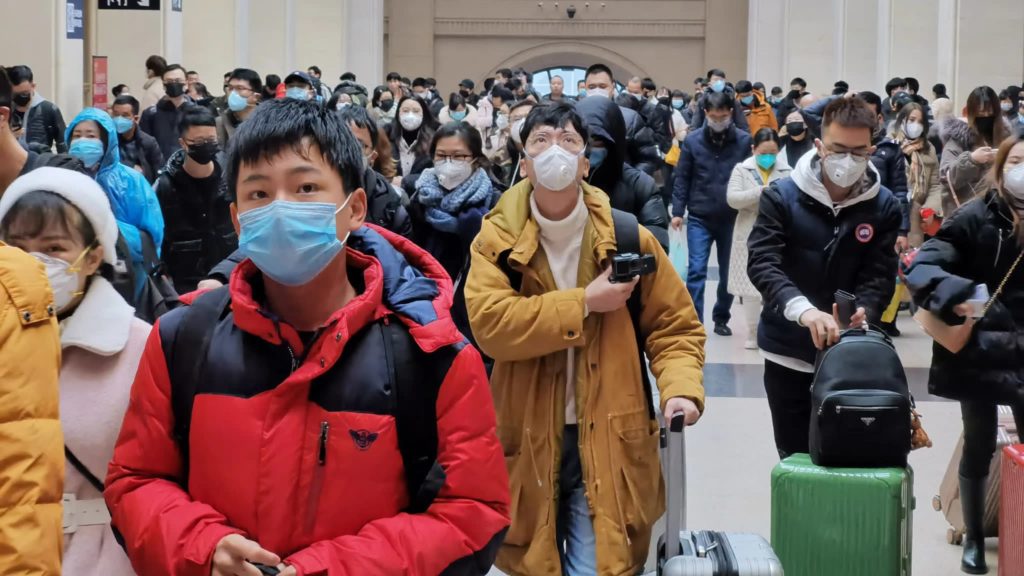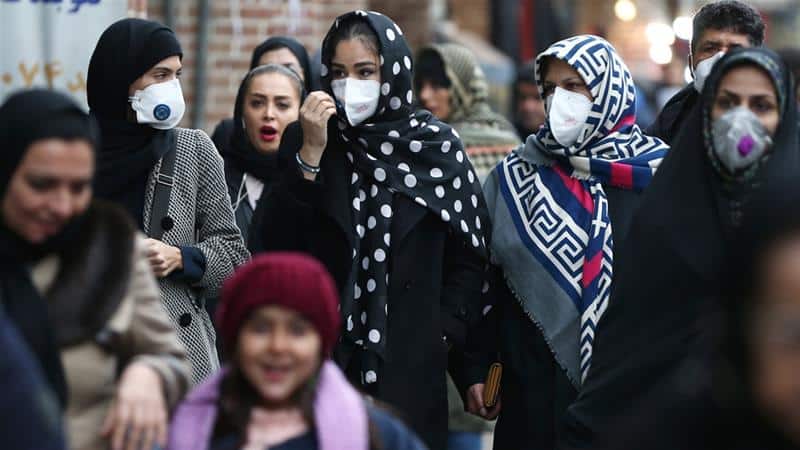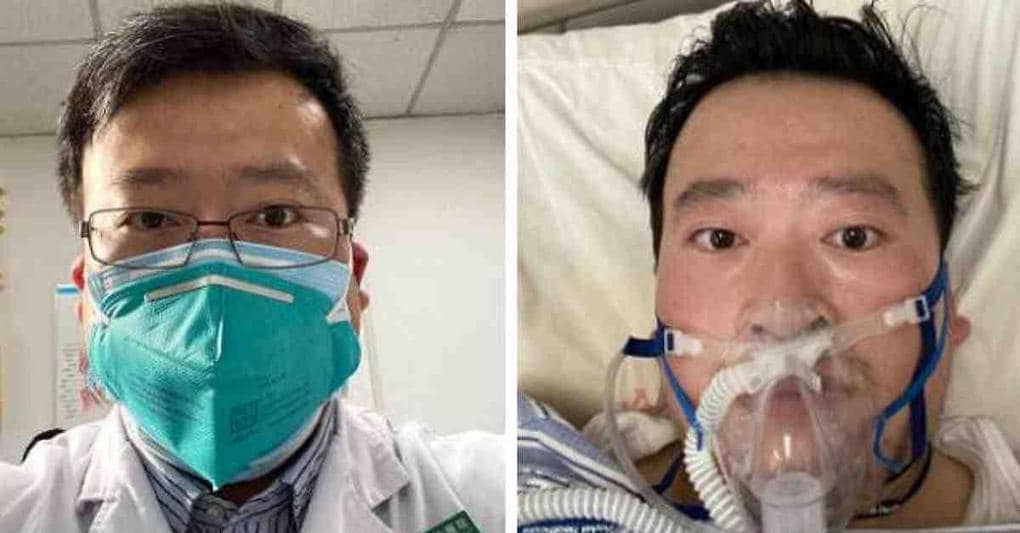In late December 2019, Dr. Li Wenliang, an ophthalmologist from Wuhan Central Hospital, sent a WeChat message to his group of former medical students. He said 7 people with severe respiratory and flu-like symptoms had recently been hospitalized.
One thing they had in common, besides the symptoms, was that they had visited a “wet market” (a market with live or freshly killed animals) in the previous week.
The disease had a strange resemblance to SARS, but it also had a new aspect: Could it be the outbreak of a new disease? If so, what should have been done? But before any of the doctors could act or alert the local media, the chat conversation was shut down by the Wuhan police and Li was accused of spreading rumors. The chat was not in a public forum - it was an exchange in a closed group. But can we say that a private conversation exists in the era of global control of personal freedoms, especially in countries like China that exercise technological supremacy in this field?
Police gave Li a warning, accusing him of spreading false information and disturbing public order. He ordered him to sign a document withdrawing his warning and to stop telling people that this virus existed, or he would be put in prison. So he did.
Just over a month later, on February 7, Li died.
The official cause? The coronavirus, contracted in the same hospital where he worked. He had been infected while trying to treat sick patients who had continued pouring into the hospital throughout January.
At this point the CCP was unable to deny the existence of the virus as hundreds and thousands of people had begun to fall ill. Travel restrictions and quarantines went into effect, but it was already too late. Schools and businesses were closed. People remained confined to their homes. And the economy has suffered the huge blow that could lead to a depression.
How different might our current situation be if Li's warning had been acted upon instead of silencing him?
“People say China has done a good job in handling the virus. I do not agree"Said Alex Gladstein, Chief Strategy Officer at the Human Rights Foundation. “The reason we have this global pandemic right now is because of Chinese censorship and the totalitarian nature of the government.”
What can we learn from the responses of various governments to this pandemic? Let's keep an eye on our freedoms as this crisis continues to unfold.
Open, competent or neither?
The speed at which this disease has spread across different countries has varied wildly, as has the number of deaths versus recoveries. Western Europe is home to some of the richest and most powerful countries on Earth, but now is not a great time to live there. And in the United States, it's about to get even worse.
“Given half a century of research, the correlation is strong: democracies handle public health disasters much better than dictatorships”Gladstein said citing an February 18 article on The Economist, which examines epidemic deaths relative to GDP per person in democracies and non-democracies.
Taiwan also did well, as did South Korea, although their systems of government work very differently from Singapore. So what factors may have contributed to how quickly the virus spread and how hard the economy was hit in these nations?
There are two axes that are relevant: one is the openness of a company and the other is its competence. An open but less competent government is as likely to perform poorly in a public health crisis (or any crisis) as a competent but closed government.
“In the long run, some of the best performing societies are open, competent democracies like Korea and Taiwan,” Gladstein said. Taiwan is a somewhat surprising example given its proximity to China and the amount of travel between the two.
Success here, failure there

With a population of 23 million people and the first case confirmed on January 21, Taiwan it has had 306 cases and 5 deaths to date. They immediately began screening for people from China and stopped nearly all incoming travel from China within weeks of the outbreak, creating an alert system that integrated data from the national health insurance database with immigration databases and customs (this involved a degree of invasion of privacy and limitation of personal freedoms that we would probably not be comfortable with). High-risk people were quarantined at home, and the government quickly required the production of millions of masks. There was definitely less panic and more trust in government, and that paints a picture of what we should all aspire to.

Iran is on the other end of the spectrum both in terms of competence and openness; have recorded over 41.000 cases and over 2.700 deaths. Thousands of people have died in Iran, but we will never know the truth because there is no free press there. Then there is China. In addition to lockdowns imposed by “neighborhood leaders” and the police, the government has increased its already heavy surveillance of citizens, tracking people's locations with apps like AliPay and WeChat. A color coding system indicating people's health status and risk level has been implemented and their movement has been restricted accordingly.
They used the full power of the state to reduce the virus, and from what we know, they have been relatively effective. But this comes with two caveats: a, the measures to limit personal freedoms adopted by China would be "unthinkable" in a democracy. Due, we cannot take their data at face value due to the lack of a free press or independent watchdogs in the country (also the New York Times, the Wall Street Journal and The Washington Post they were expelled from China on March 17. It may have been a kind of retaliation for the recent move by the US State Department to limit the number of Chinese journalists allowed to work in the United States for a handful of Chinese state-owned media.)
Surveillance = Success?
La South Korea e Singapore, the world's other two containment success stories, have both used a form of surveillance to fight the virus.
In Korea, the 2015 MERS outbreak led to a law that allows the government to use smartphone and credit card data to see where people have been, then share that information (stripped of identifying details) on apps so that people who may have been infected can be tested and monitored.
Singapore also moved well
The government has launched a contact tracing app called TraceTogether. He sent text messages to people who had been ordered to stay home. It required them to respond with their real-time GPS location. To date, Singapore has reported 879 cases and 3 deaths.
Does the success of these countries and their use of surveillance mean that we have to give up some of our privacy to fight this disease? Would Americans and Europeans be willing to do so if it meant this terrible ordeal would end sooner? And how do we know where to draw the line?
The temporary can be tricky
Gladstein, the answer is simple. “We don't need a police state to fight public health disasters”he said. “We should be very wary of governments that tell us that they must take away our personal freedoms to protect us and that they will only take those freedoms away for a limited period of time.”
Many personal data are already collected on each of us, every day. what ads we click on, how much time we spend on different websites, what terms we search for, and even where we go and how long we stay there. Would it be so terrible to apply all that data to stem the spread of a disease that has brought our economy to a halt?
A significant problem with the security measures taken during trial periods is that often those measures that limit personal freedoms are not scaled down when society returns to normal.
During the 2008 Olympics in Beijing, the government said the new security measures were temporary. but they turned out to be permanent”, said Gladstein. Yuval Noah Harari he writes on Financial Times: “Temporary measures have a nasty habit of sticking around, especially because there is always a new emergency lurking on the horizon. Many of the emergency measures adopted during the War of Independence in 1948 were never lifted."
Test, transparency, trust
This is fundamental: Although surveillance has been a key part of Taiwan, Korea and Singapore's success, widespread testing, consistent messaging, transparency and trust have all been equally critical. Andrew Leonard he wrote in an excellent article about Wired: “In the US, the Trump administration has directed federal health authorities to treat high-level discussions about the coronavirus as classified material. In Taiwan, the government has gone to great lengths to keep citizens well informed about every aspect of the outbreak.”
In South Korea, President Moon Jae-in has reduced his communications with the public to a minimum. Health officials updated the public on the status of the pandemic twice a day. The government of Singapore has provided clear and consistent updates on the number and origin of cases in the country.
Gladstein reiterated that democracies are more suitable than dictatorships in managing public health crises because people must be able to innovate and collaborate without fear of limitations on personal freedoms.
The US response to the coronavirus has been dismal. And this despite a high level of openness that includes democratic elections, much emphasis on personal rights and freedoms, and a “free” press. To date, over 100 million Americans are forced into their homes. Testing, trust and transparency are all still lacking. What will the United States do to stem the spread of Covid-19? What will they do when more and more people become seriously ill in the coming days and weeks?
“Secrecy, lies and censorship only help the virus,” Gladstein said. “We want open societies.” This “open” society and its personal freedoms are about to be put to the test, and in a big way.

Bianca Stan – Graduated in Law, writer with several books published in Romania and journalist for the group “Anticipatia” (Bucharest) focuses on the impact of exponential technologies, military robotics and their intersection with global trends, urbanization and long-term geopolitics. She lives in Naples.


